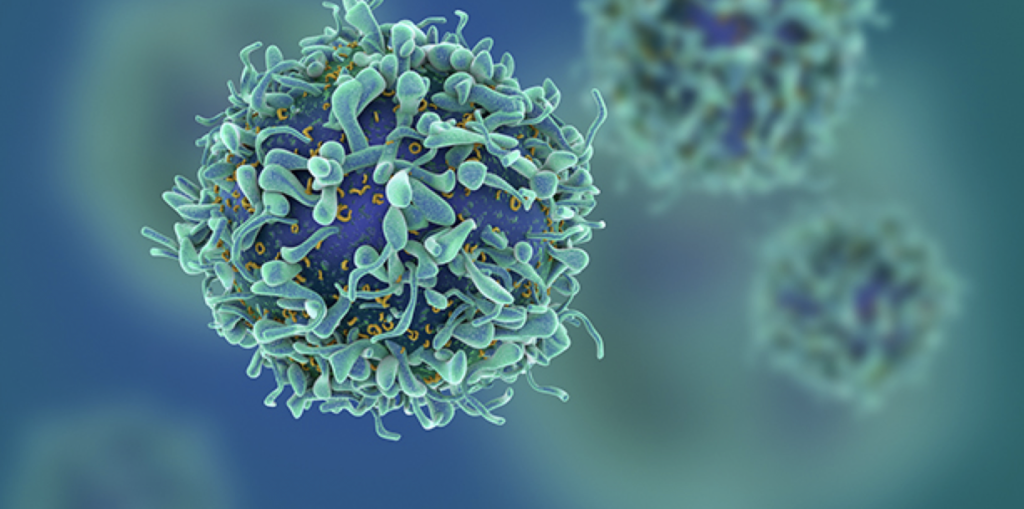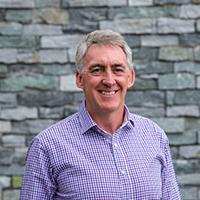“When you’ve exhausted all possibilities, remember this: You haven’t.”
Thomas Edison
Hi everyone,
As you probably know, since finishing my tertiary training over 30 years ago, I have been constantly studying.
Firstly, to meet the challenge of: “I’ve been everywhere else, I’m coming to see you as a last resort!” No pressure with that one! Secondly, because I love to acquire knowledge—especially when I can use it to help my patients.
In recent times, my focus has been a travelling down the scientific rabbit hole associated with cancer. It’s been no light reading, I can tell you. A key area of interest that has had me digging deeper and deeper is around ‘The Hallmarks of Cancer’.

These are, in simple terms, the characteristics that differentiate a cancer cell from a normal cell.
So what are the ‘Cancer Hallmarks’?
- Cancer cells are immature, without any key purpose other than to eat and take up space.
- They evade ‘immune surveillance’, this is via an ability to camouflage themselves by becoming nearly invisible in their surroundings.
- They follow a random, out-of-control, growth process.
- They control their blood supply in a way that gives advantage to them but disadvantage to the host.
- They principally require glucose for their survival.
- They have limitless replicative potential. (They don’t have a finite life span and, therefore, must be destroyed to be stopped.)
- They have a large nucleus full of ‘adaptive’ strategies that helps them to survive without influence from the body’s normal signals and directives.
- They have a very different micro-environment which needs low-oxygen, high-inflammation, low pH and high glucose levels for their function.
In a nutshell, they are very different from a normal healthy cell and need a comprehensive and considered strategy to deal with them.
It’s probably no surprise, that the Naturopathic Cancer Strategy is very different from the Medical Cancer Strategy. This is principally because Naturopathy sees cancer as a metabolic disease whilst Medicine sees cancer as a genetic disease. Whilst there is no doubt that cancer cells have a different DNA, it is interesting that when healthy mitochondria are grafted into a cancer cell it stops acting like a tumour cell and when a tumour’s mitochondria is grafted into a genetically healthy cell, it becomes a tumour cell. This tells us that genetics aren’t the determinant factor! The environment that the DNA is exposed to appears to be the issue! *
Medicine provides therapies which powerfully target some of the Cancer Hallmarks with a goal to disable and destroy them. Because it sees cancer as a ‘genetically triggered runaway train’, Medicine targets cancer cells aggressively. Unfortunately, this is normally achieved at the expense of the health status of the patient. It also gives scant attention to the importance of lifestyle factors such as diet, relaxation, fresh air and exercise. But it does kill cancer cells!
The Naturopathic Strategy uses a holistic philosophy. It sees cancer as a metabolic disease and, therefore, focuses on creating an environment that is favourable for healthy cells and unfavourable for cancer cells. It considers causative factors, lifestyle factors and all of the Cancer Hallmarks in its approach. Where it differs most is that it does not use the same degree of cancer killing artillery as medicine, but instead enhances the body’s ability to help itself. It aims to create an environment where the body’s own immune system has the context to allow it do what it has the ability to do – kill cancer cells!
In short, orthodox medicine kills cancer cells better than Naturopathy. However, Naturopathy addresses oncogenic drivers, psycho-physiology, immune system integrity, lifestyle enhancement and total hallmark focus better than orthodox medicine.
I believe to truly cover the cause and effect we need to consider both Orthodox and Natural Strategies.
A paper published in the peer reviewed Integrated Cancer Therapies in 2011 also agrees. It showed that when comparing patients with Stage 4 Colon Cancer who were treated exclusively by medicine with those treated with a partnership of medicine and Naturopathy, there was a marked difference in outcome.
The 5-year survival rate for the group treated solely by orthodox medicine was only 7% whilst the combined group had an 82% survival rate. These profound differences can’t be overlooked and there needs to be more studies into the effects of an integrated cancer treatment approach so that the current treatment trajectory can be influenced to deliver better results.
Until that is possible, please know that there are some things that you can focus on NOW to reduce your risk and, if you are suffering from cancer, potentially improve your outcome. All of the following suggestions improve your genetic stability and favourably impact on your intra and extra cellular environments. This ultimately determines whether cancer is initiated, promoted or propagated.
- DON’T SMOKE!! (This tip is pretty self-explanatory.)
- Maintain ideal weight.
- Eat a variety of local and seasonal fresh fruits and vegetables daily. (Organic where possible.)
- Limit alcohol consumption.
- Avoid exposure to chemical and pollution where possible.
- Not too much / Not too little sun exposure. Cover up in the middle of the day. Expose yourself in the early mornings and late afternoons. A 10-20 minute kiss from the sun at these times will ensure adequate production of the anti-cancer vitamin D and melatonin.
- Have an unprocessed plant-based high-fibre diet, incorporating fruits, vegies, nuts and seeds. Fibre helps to mop up and clear away potential cancer causing toxins whilst also helping to maintain a balanced and effective microbiome which is critical for cancer prevention.
- Be active every day.
- Eat spices. (I’ve incorporated this last one because in all my research the item that came up with the most scientific evidence across all of the Hallmarks of Cancer was turmeric. There is no drug on that planet that matches the breadth of anti-cancer actions of this amazing spice. Remembering the Spice Wars for the 1600’s—which saw spices deemed more valuable than gold- it’s really no surprise that science is now lauding these therapeutic and delicious phytochemicals.)
In finishing, I would love you to filter what you’ve read in this article through your heart and your head. In other words, does it feel right or does it make sense? Do you think that it is reasonable to work on your health while you are treating cancer?
I’m clear on my answer. What’s yours?
*If you’re interested in reading more about ‘Cancer as a metabolic disease’ – simply connect to the following scientific paper published in Carcinogenesis in 2014. https://www.ncbi.nlm.nih.gov/pmc/articles/PMC3941741/
SHARE THIS ARTICLE
